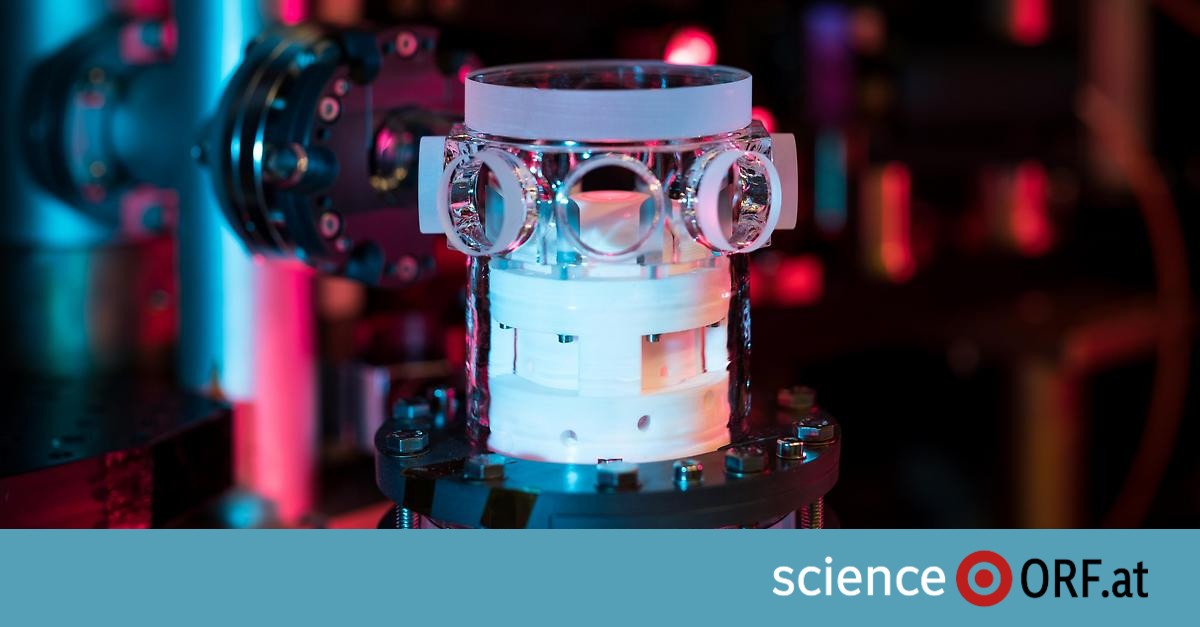With a system at the Universities of Innsbruck and Harvard, ultra-cold magnetic quantum matter can be observed in a new way. Researchers can now arrange them in a checkerboard and lines pattern.
Francesca Ferlino From the Institute of Experimental Physics at the University of Innsbruck and the Institute for Quantum Optics and Quantum Information (IQOQI) of the Austrian Academy of Sciences (ÖAW) is particularly interested in quantum gases that occur at temperatures close to absolute zero. These gases can be composed of strong magnetic particles. You are then dealing with “dipole quantum gases” in which there are strong interactions between atoms.
“Because of their strong magnetic character, particles affect each other over much greater distances than non-magnetic particles, and their influence always acts in a certain direction. “Due to the properties of the particles, we can observe interactions in these quantum gases that cannot be seen in conventional experiments,” Ferlaino said in a statement issued by the University of Innsbruck. This opens up “entirely new insights into how solids work.”
“Like a model ship in a bottle”
In order to better approach these phenomena, which cannot be described using the rules of classical physics, the Innsbruck team worked with a group of German physicists working at Harvard University in the United States. Marcus Greiner cooperated. In recent years, Greiner’s team has had several successes in technical developments for observing single atoms.
The current approach is said to be comparable to a tiny model vessel in a glass vial. The lens of a quantum microscope is housed inside a vacuum glass cell. The heart of the experiment is a grid of laser beams, which are used to create a kind of photonic crystal in the room. Inside are erbium atoms cooled to temperatures near absolute zero, something Ferlaino has been working on for many years.
Most notably, this magnetic quantum material can be affected by external magnetic fields. Scientists have been able to demonstrate that many dipole quantum solids can form from a superfluid – that is, a resistance-free liquid – in the device.
Interactions as a dominant factor
Under the microscope, amazing patterns of formation of atoms in the laser grid were revealed: this is how the physicists described it in their work In the magazine “Nature” Prisms, which are structures with diagonal or transverse lines, but also atomic distributions very similar to a checkerboard pattern. Special long-range interactions between the prepared erbium atoms are responsible for these effects, which come into play when “the ordering force of the photonic crystal is broken,” as Ferlaino puts it.
The system is set up in such a way that interactions are the dominant factor in particle behavior, the researchers wrote in their paper. For them, quantum microscopy is a promising platform for analyzing properties of quantum matter associated with magnetism that were previously inaccessible.

“Total coffee aficionado. Travel buff. Music ninja. Bacon nerd. Beeraholic.”








More Stories
Coral Seeding: Artificial Insemination Makes Coral More Heat Tolerant
Fear, Anger, and Denial: How People Respond to Climate Change – Research
LKH Graz: Using radiation to combat heart arrhythmias